#PickupTrucks
Ford's Marketing Strategy for Plug-in F-150 Fixates on More Power
The pervasive opinion among truck enthusiasts and industry experts is that nobody cares about plug-in hybrid pickups. Fuel economy isn’t a major priority among those in the market for something that can haul bales of hay or a stable of horses.
This poses a problem for pickup manufacturers striving for lower emissions and fuel consumption. Ford, which previously lightened the F-150 and outfitted it with a bevy of more economical engines, knows this problem better than most.
However, Ford is pressing onwards. It even intends to bring a hybrid plug-in variant of its ultra-popular pickup to the market in the coming years. But how is it going to market the technology to consumers who are unlikely to care? The company has strategy for that and it’s less reliant on fuel savings than you might expect.
Work and Play: Nissan Adds a Brace of Packages to Titan and Titan XD
America loves its pickup trucks, evidenced by a segment that’s increased nearly 5 percent compared to the same time last year.
Sure, many trucks across the nation haul nothing but air in their beds, but more than a few actually work for a living. Nissan is attempting to lure both parties into its showrooms by adding a couple of new option packages to its trucks – one for work and one for play.
Made for America, the Nissan Titan Expands Its Horizons
In terms of monthly U.S. sales, Nissan’s line of Titan pickups ended September in the number nine spot, ahead of the midsize GMC Canyon but behind its own paleolithic Frontier. While the 3,773 Titan and Titan XDs sold last month represent a tiny fraction of the 82,302 Ford F-Series models sold in the same time frame, it’s still a 52-percent increase from the same month in 2016.
Year-to-date, however, Titan sales are up 224 percent in the United States. That’s enough to get Nissan thinking about the pickup’s potential in markets not dominated by tried-and-true nameplates from the Detroit Three.
It seems Nissan’s planning to seize some ground for itself on fertile — but traditionally unfriendly — terrain. Looking back, the looming push was obvious.
Ford's Reoccurring Door Latch Problem Results in Massive F-Series Recall
On Wednesday, Ford Motor Co. recalled 1.3 million F-150 and Super Duty pickups to fix faulty side door latches. In the affected vehicles, a frozen door latch or a bent actuation cable could result in a door that neither opens or closes — nullifying the only thing it’s responsible for.
However, the real risk comes from faulty doors that appear to be functional but latch improperly when shut. Points of entry that may appear to have shut as intended could still have latches that don’t engage with the striker effectively, allowing for a seemingly closed door to swing open suddenly while a vehicle is in motion.
September 2017 Was a Terrific Month For Pickup Truck Sales in America
September 2017 sales of pickup trucks rose to the highest level so far this year in the United States, jumping 12 percent to 257,864 units.
Prior to this point, truck sales had grown by less than 4 percent, year-over-year, averaging slightly more than 225,000 monthly units.
September’s big gain was fuelled almost entirely by improvements among the full-size pickup trucks that own 84 percent of America’s pickup truck market. And America’s full-size pickup truck gains were powered in large part by America’s best-selling line of vehicles: the Ford F-Series.
A Proper Pickup Truck, Not Just a Santa Cruz, Is Being Considered For Production at Hyundai
“We’ve been talking about it for a number of years now,” Hyundai Australia’s chief operating officer, Scott Grant, said at the Genesis G70 global reveal.
No, he’s not talking about the G70, or any Genesis for that matter. He’s not talking about the H-100 pictured above. He’s not talking about the Tucson-based Hyundai Santa Cruz that finally seems destined for production after years of back-and-forth indecision.
Hyundai is now considering a true pickup truck. “We’re confident of having something on the other side of 2020,” Grant says.
Hyundai’s coming for your pickup truck market share, Nissan.
BMW's Description of the Mercedes-Benz X-Class Pickup Truck Is Decidedly Unkind
“They build fantastic cars,” BMW senior vice president Hendrik von Kuenheim told Australian automotive media at the Frankfurt Motor Show. “But this one was a disappointment.”
von Kuenheim is talking about the Nissan Navara-based Mercedes-Benz X-Class pickup, a truck not presently destined for North America but one that will appear across the region for which von Kuenheim is in charge: Asia, Australia, South Africa.
“I saw that car in Geneva and was actually disappointed,” BMW’s von Kuenheim says. “Very disappointed.” Calling the X-Class “appalling,” and suggesting we “would have expected something more serious,” von Kuenheim’s comments about the body-on-frame Mercedes-Benz pickup accompanied a number of revelations regarding a future BMW truck.
Don’t expect a BMW pickup to rival the Chevrolet Colorado ZR2.
There Will Be a New Nissan Frontier, and It Will Be Built In Canton, Mississippi
“The dedicated employees here in Canton look forward to building
the next generation of one of the best pickup trucks in America.”
– Steve Marsh, VP Manufacturing, Nissan Canton Vehicle Assembly Plant
Nissan has announced that a next-generation Nissan Frontier will be built in Canton, Mississippi, the same plant that’s been building the nearly 13-year-old second-gen Frontier since 2012.
But the platform on which the next Frontier will be based? And the precise timing of the unveiling and on-sale date?
Still unknown.
Smaller Pickups Outperformed the Big Boys in IIHS Overlap Crash Test
The Insurance Institute for Highway Safety recently ran eight pickups through the small overlap front crash test, which replicates one of the most infamous and deadly of accident types — one where the front corner of a vehicle collides with another vehicle or object. The segment, which the IIHS called “small pickups,” could easily be categorized as midsize. But, with no smaller options currently available in the domestic market, their terminology works well enough.
So, how did the smaller pickups stack up when hurled toward a concrete pylon at 40 miles an hour? A little better than you might expect.
If we were absolutely forced to drive into a brick wall, we’d probably prefer to be seated in a full-size truck — specifically the Ford F-150 SuperCab. But the junior pickup group wasn’t a segment full of deathtraps. In fact, they suffered less structural deformation overall and posed less risk of injury to the lower leg region when compared to their full-size brethren. There were exceptions, however.
Despite Sharp Midsize Truck Decline, U.S. Pickup Truck Sales Rose 4 Percent in August 2017
Noteworthy year-over-year sales declines were reported in August 2017 by the three lowest-volume members of America’s five-strong midsize pickup truck category. As a result, U.S. sales of midsize pickups tumbled 8 percent last month, driving their share of the overall pickup truck category down from 18 percent in August 2016 to 16 percent in August 2017.
The Honda Ridgeline, America’s lowest-volume pickup truck in each of the last two months, reported a 24-percent drop to 2,610 units. For the 2018 model year, Honda will make the all-wheel-drive Ridgeline distinctly less affordable. The GMC Canyon, which persistently and predictably generates far less showroom traffic than its Chevrolet Colorado twin, tumbled by a fifth to 2,698 sales. And the Nissan Frontier, which last year reported its best calendar year results in 15 years, continued its 2017 tumble with a 51-percent plunge to only 4,637 units, its lowest-volume month since January.
But those are low-volume midsize trucks, scarcely relevant in the overall pickup truck scheme. Total pickup truck volume rose 4 percent in August because full-size trucks jumped 6 percent, thanks mainly to the best-selling vehicle line in America: Ford’s F-Series.
Hyundai Hopes to Solve U.S. Sales Woes With Slick Little Pickup
Hyundai intends to launch a small pickup truck in the United States as part of its plan to catch up with the industry’s shift away from sedans. Up until now, that strategy has involved cramming as many SUVs onto the market as possible. But Hyundai brand sales are still dragging behind 2016’s monthly averages in the U.S., with end-of-year estimates falling short of company goals.
The solution is to keep pushing the Tucson, start deliveries on the Kona mini SUV before 2018, and begin development of a pickup truck based on the Santa Cruz concept from 2015 (seen above). Hyundai is also rumored to be planning on adding three additional sport utility vehicles or crossovers to its North American lineup by 2020 — helping it shore up waning sedan and hatchback sales.
Ford F-150's V8 Market Share Shrinks to Just a Quarter
As Ford prepares to launch the refreshed 2018 F-150 with a thoroughly updated engine lineup, Blue Oval product planners expect 2017’s engine selection to continue. That means the 5.0-liter V8, while mildly upgraded for 2018, will be found under the hood of only one in four 2018 F-150s.
The transition has been a rapid one. Twin-turbocharged EcoBoost V6s were surprisingly effective when, in early 2011, 35 percent of F-150 buyers made the leap from conventional naturally aspirated powerplants. Three years later, when Ford was planning to expand the F-150’s EcoBoost lineup with a less costly 2.7-liter variant, Ford expected 56 percent of F-150 buyers to choose one of the turbocharged units.
Heading into 2018, Ford’s truck marketing manager Todd Eckert tells Automotive News that the 2.7-liter EcoBoost will be the most popular F-150 engine followed by the 3.5-liter EcoBoost. Together, they’ll claim 65 percent of all F-150 sales, leaving 10 percent for the new entry-level 3.3-liter, and roughly 25 percent for the five-point-oh.
So how many V8 engines is that?
Ford Announces Improved Hauling and Long Haul Economy for the 2018 F-150
As promised, Ford is updating the engine lineup in the company’s best-selling F-150 for the 2018 model year, providing improved fuel economy and maximum towing capacity across the board.
While it’s always a good idea to hold out a bit of skepticism until review time, Ford previously low-balled its economy estimates for the F-Series — as such, we’re working with some previously existing good faith.
News has been trickling out regarding Ford’s upcoming styling tweaks, advanced safety tech, and a powerful new diesel engine for the 2018 model. We also knew the F-150’s gas engines would be getting upgraded specs and, while some alterations are minor, there are a few big numbers worth disclosing.
And they have little to do with the 5.0-liter V8.
U.S. Pickup Truck Sales Dipped in July 2017 - Blame General Motors
America’s auto industry is expected to report today its seventh consecutive month of decline, a drop of at least 5 percent based on forecasts and some sharp declines from three of the largest manufacturers: GM, Ford, and FCA.
Incidentally, GM, Ford, and FCA are America’s three biggest sellers of pickup trucks, and for the most part, pickup trucks are allowing a degree of buoyancy at the Detroit Three despite plunging passenger car sales. But after pickup truck sales rose 4 percent through the first-half of 2017, pickup truck sales declined in July 2017. Slightly. Somewhat.
And it was mostly General Motors’ fault.
Honda Ridgeline AWD Takes a Huge Price Jump for 2018 - Is Honda Shooting It in the Foot Again?
Suggesting that the automaker is “providing a more compelling value,” American Honda is removing the second-from-the-bottom RTS trim level from the 2018 Honda Ridgeline lineup and extinguishing the all-wheel-drive option on basic RT Ridgelines.
As a result, after a 2017 run in which all-wheel-drive Ridgelines could be purchased for $32,315, the 2018 Honda Ridgeline AWD now has a base price $3,695 higher than before.
$36,010.
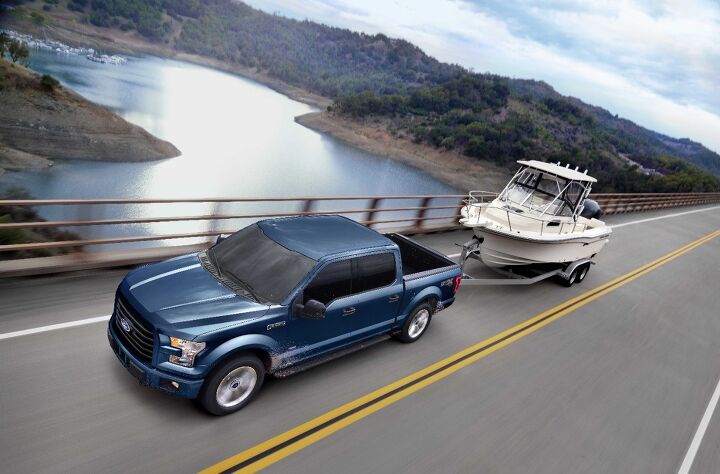

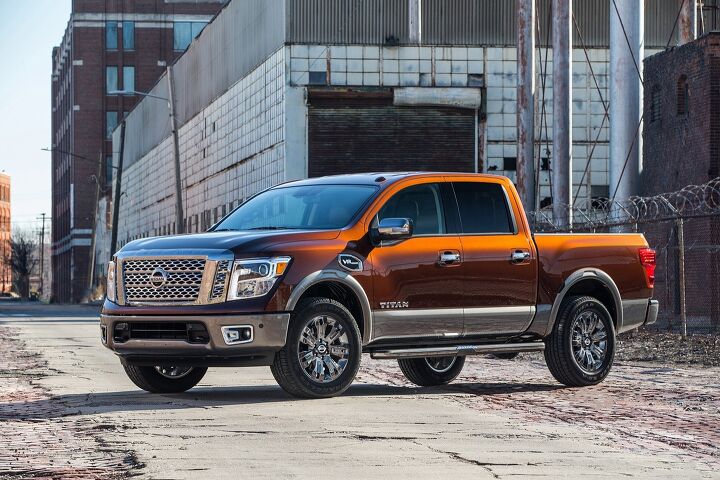
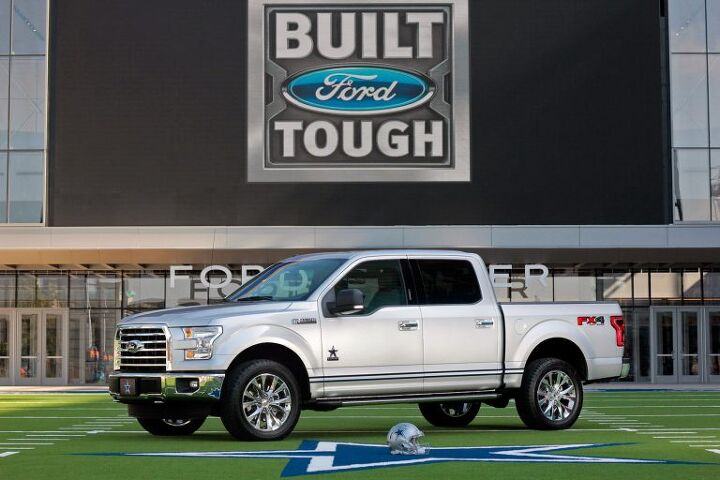
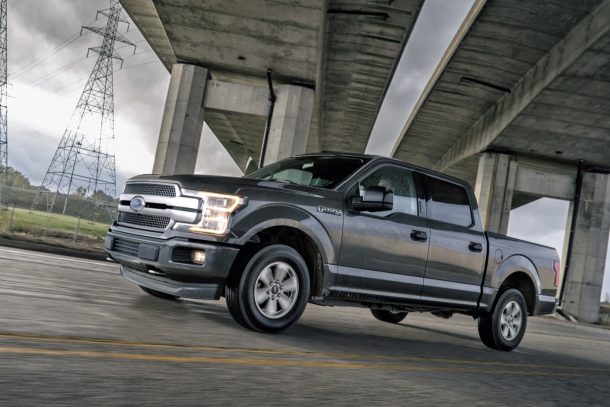
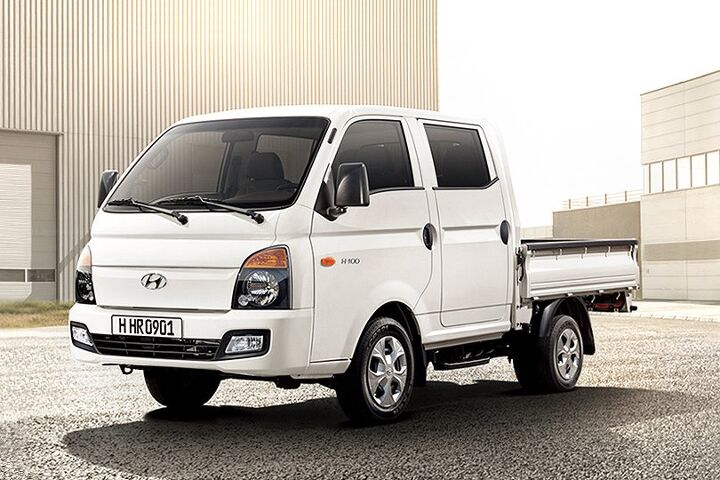
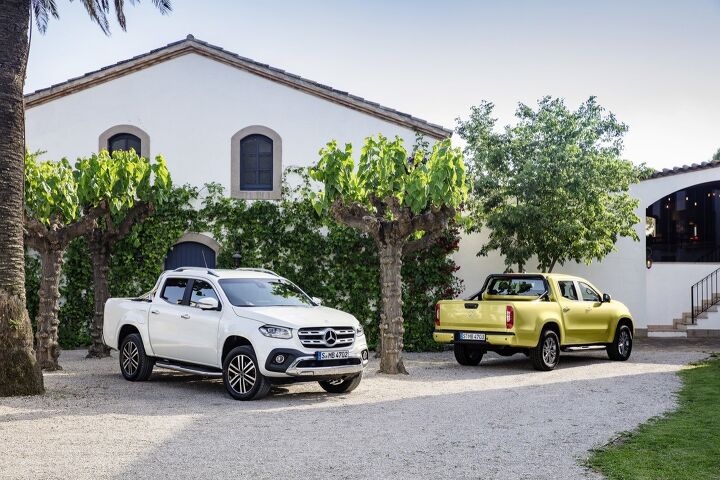
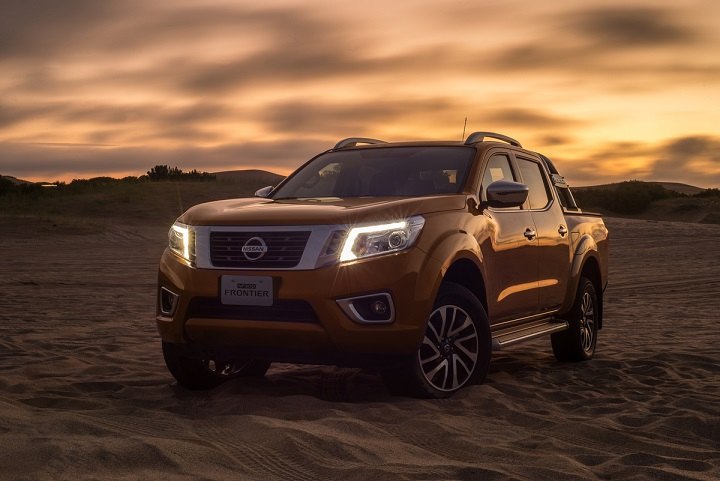

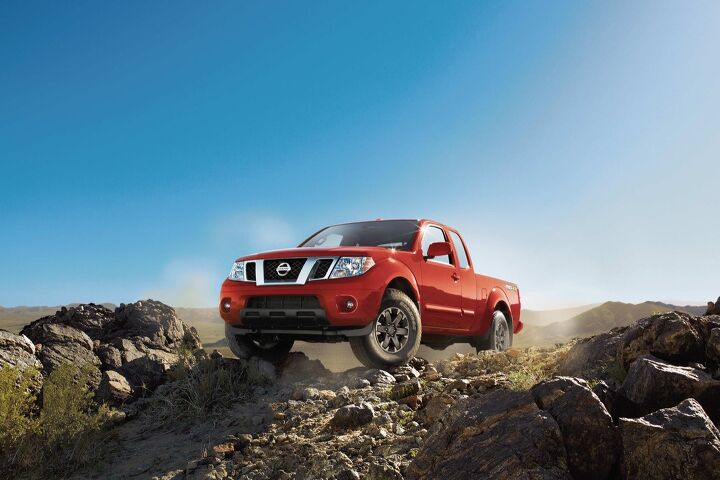

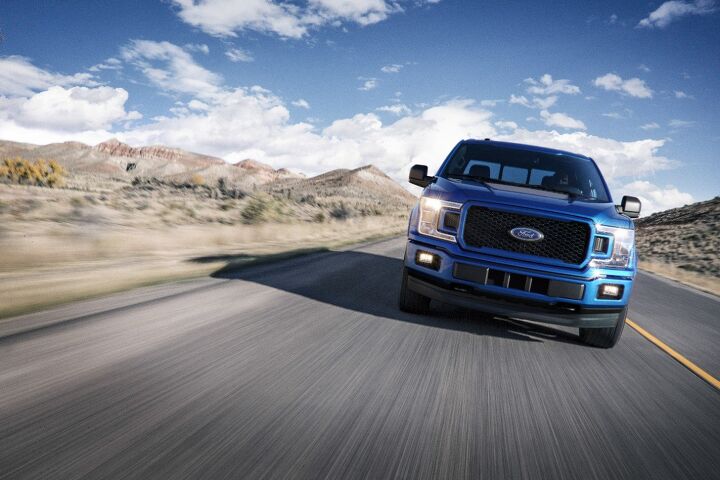
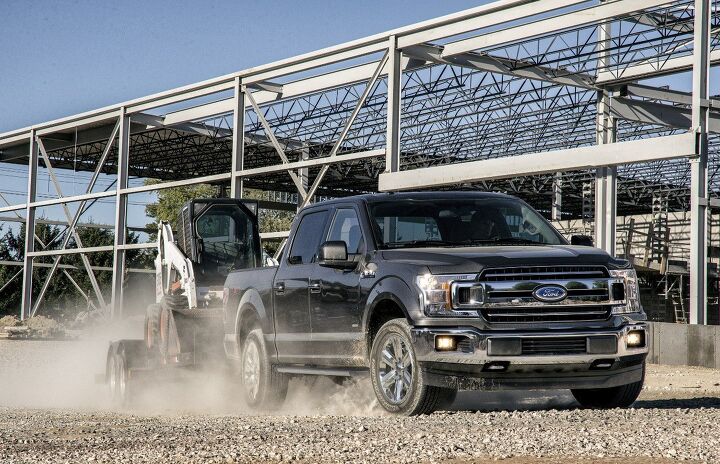














Recent Comments